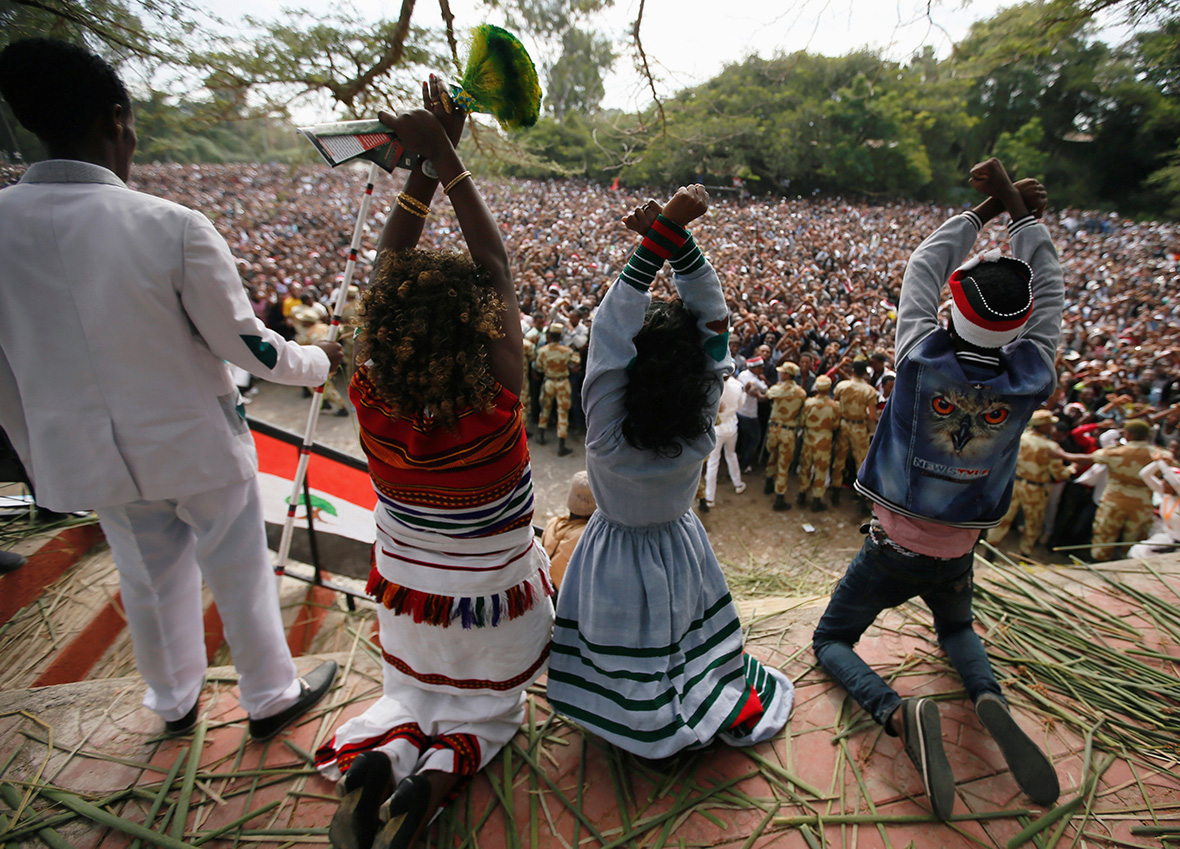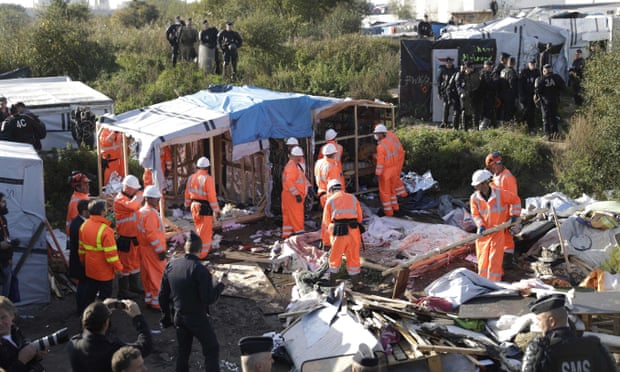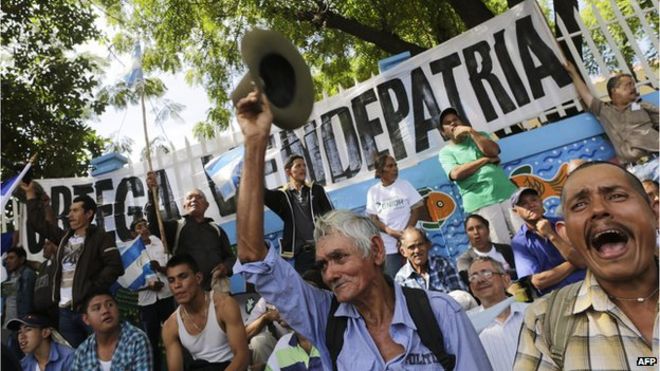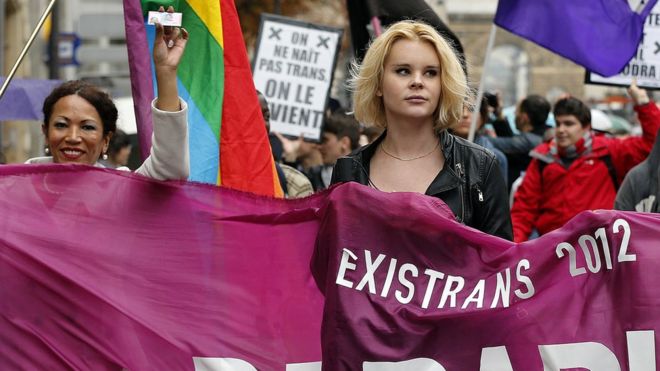By Samantha Netzband
Impunity Watch, Africa Desk Reporter
ADDIS ABABA, Ethiopia– Unrest continues in Ethiopia as protests spark 1,000 arrests in the Sebeta town just outside of the capital Addis Ababa. On October 9, 2016 the country proclaimed a state of emergency after protesters were killed by security forces. Under the state of emergency movement of diplomats, protests, and access to the internet and social media have been restricted.

Demonstrators in the Oromia region protest while security forces hold back the crowd. (Photo Courtesy of International Business Times)
People in the Oromia region of Ethiopia have been protesting since late last year. Unhappy with the current government and the lack of their ability to self determine they have conducted peaceful protests. The government however, has hit back hard.
According to Amnesty International over 600 people have been killed since November. Outsiders, like Angela Merkel, are calling on Ethiopia to allow protest, and if necessary curb protests with proportionate force. Many see the countries use of a state of emergency as a way to curb protests in a violent fashion.
Ethiopia’s state of emergency is expected to last for six months. During this time the Oromia people show no sign of stopping their protests.
For more information, please see:
New York Times – 1,000 Arrested This Month After Violence: Ethiopia Mayor – 18 October 2016
OPride – Ethiopia’s alarming trend of State Terrorism should Rattle Everyone – 15 October 2016



